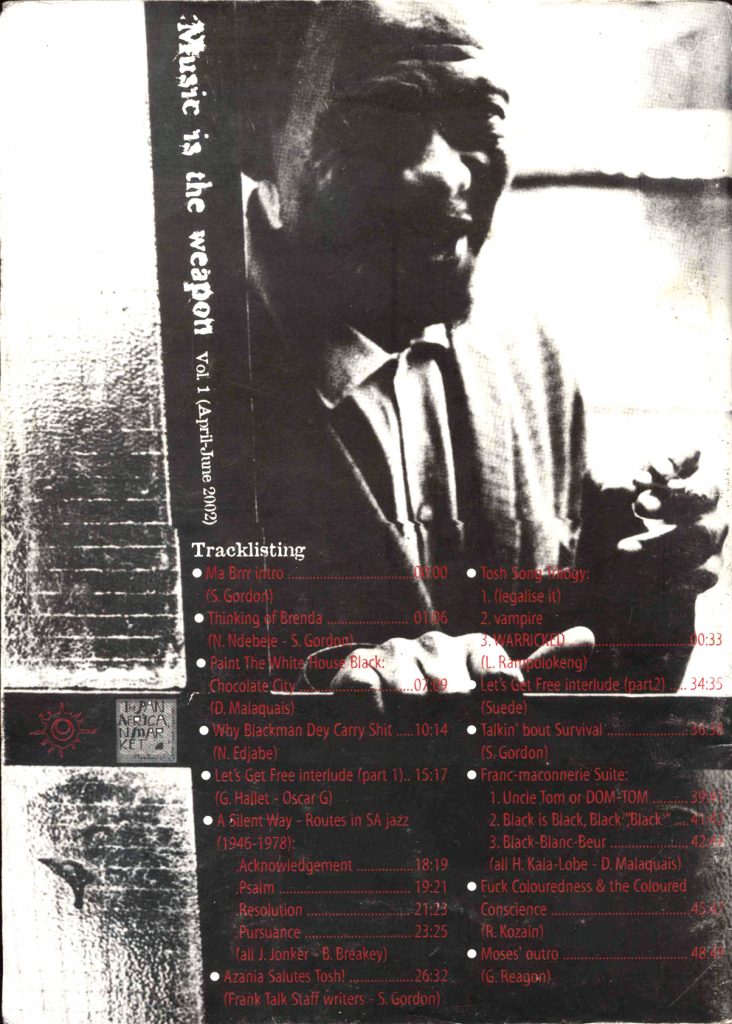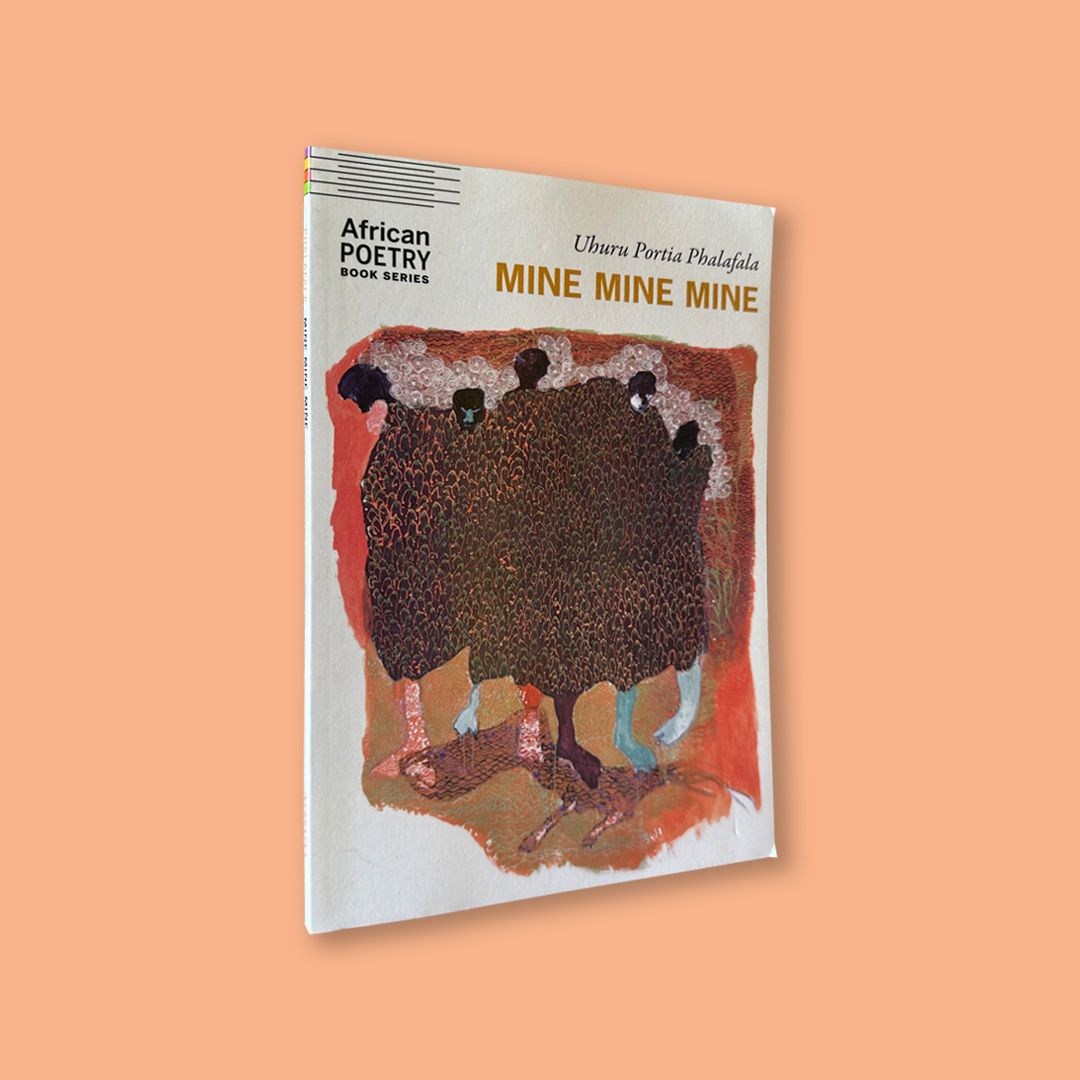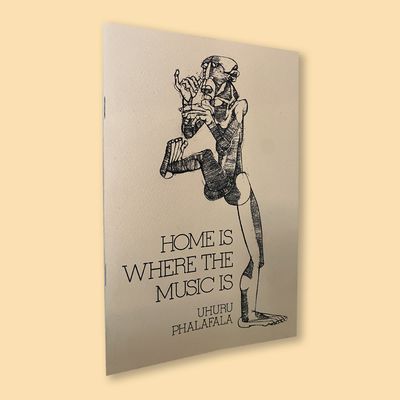“…The struggle of black people inevitably appear in an intensely cultural form because the social formation in which their distinct political traditions are now manifest has constructed the arena of politics on ground overshadowed by centuries of metropolitan capitalist development, thereby denying them recognition as legitimate politics. Blacks conduct a class struggle in and through race. The BC of race and class cannot be empirically separated, the class character of black struggles is not a result of the fact that blacks are predominantly proletarian, thought this is true…”- (Frank Talk Staff Writers in ‘Azania Salutes Tosh’ – circa 1981)

front cover:
Tosh by Steve Gordon
back cover:
Kippie by Basil Breakey
Mine Mine Mine by Uhuru Portia Phalafala (University of Nebraska Press/Lincoln, 2023)
Mine Mine Mine by Uhuru Portia Phalafala (University of Nebraska Press/Lincoln, 2023)
Mine Mine Mine is a personal narration of Uhuru Portia Phalafala’s family’s experience of the migrant labor system brought on by the gold mining industry in Johannesburg, South Africa. Using geopoetics to map geopolitics, Phalafala follows the death of her grandfather during a historic juncture in 2018, when a silicosis class action lawsuit against the mining industry in South Africa was settled in favor of the miners.
Phalafala ties the catastrophic effects of gold mining on the miners and the environment in Johannesburg to the destruction of Black lives, the institution of the Black family, and Black sociality. Her epic poem addresses racial capitalism, bringing together histories of the transatlantic and trans-Indian slave trades, of plantation economies, and of mining and prison-industrial complexes. As inheritor of the migrant labor lineage, she uses her experience to explore how Black women carry intergenerational trauma of racial capitalism in their bodies and intersects the personal and national, continental and diasporic narration of this history within a critical race framework.


